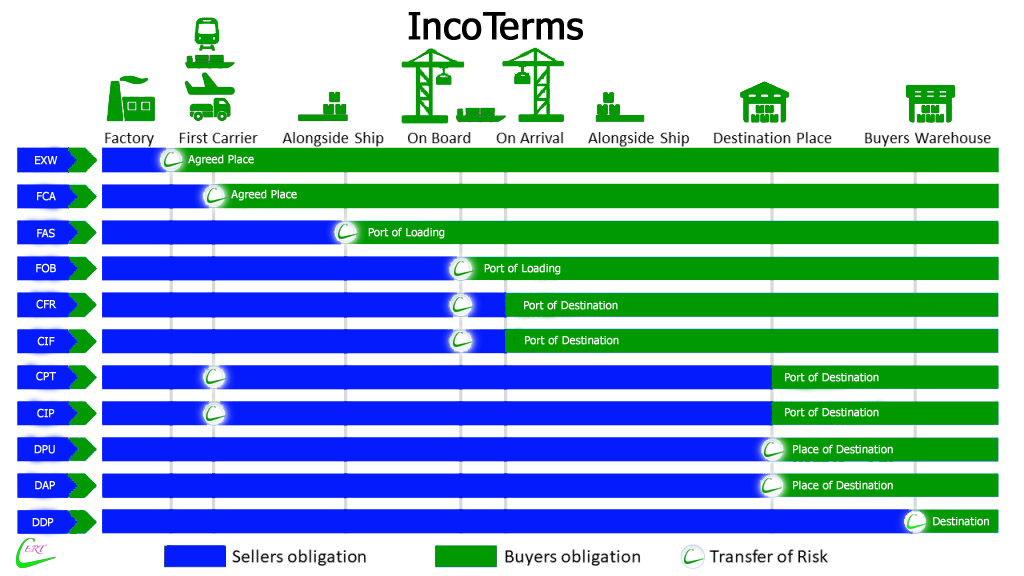Carriage Paid To (CPT)
“Carriage Paid To” means that the seller delivers the goods to the carrier or another person nominated by the seller at an agreed place (if any such place is agreed between parties) and that the seller must contract for and pay the costs of carriage necessary to bring the goods to the named place of destination.
Can be used for any transport mode, or where there is more than one transport mode.

The seller is responsible for arranging carriage to the named place, but not for insuring the goods to the named place. However delivery of the goods takes place, and risk transfers from seller to buyer, at the point where the goods are taken in charge by a carrier – see delivery.
Things to watch for.
Terminal Handling Charges (THC) are charges made by the terminal operator. These charges may or may not be included by the carrier in their freight rates – the buyer should enquire whether the CPT price includes THC, so as to avoid surprises.
The buyer may wish to arrange insurance cover for the main carriage, starting from the point where the goods are taken in charge by the carrier – NB this will not be the place referred to in the Incoterms rule, but will be specified elsewhere within the commercial agreement
See also “Carriage and Insurance Paid To CIP”
Carriage Paid To (CPT): Further information
As with the other “C” rules, a good choice for transactions involving letters of credit.
Click here for an explanation
For more details regarding the updated 2020 terms, please speak with your nominated shipping company or refer to the International Chamber of Commerce.
There are two key changes in Incoterms ® 2020 compared to the last edition:
- DAT (Delivered at Terminal) is renamed Delivered at Place Unloaded (DPU)
- FCA (Free Carrier) now allows for Bills of Lading to be issued after loading
Other changes include:
- CIF (Cost, Insurance and Freight) and CIP (Carriage and Insurance Paid To) set out new standard insurance arrangements, but the level of insurance continues to be negotiable between buyer and seller.
- Where listed, cost allocation between buyer and seller is stated more precisely – one article lists all costs the seller and the buyer are responsible for.
- FCA (Free Carrier), DAP (Delivered at Place), DPU (Delivered at Place Unloaded) and DDP (Delivered Duty Paid) now take account of buyer and seller arranging their own transport rather than using a third party.
- Security-related obligations are now more prominent.
- “Explanatory Notes for Users” for each Incoterm® have replaced the 2010 edition’s Guidance Notes, and are designed to be easier for users.
- CIP now requires as default insurance coverage ICC A or equivalent. It was ICC C under Incoterms® Required insurance coverage under CIF remains.


